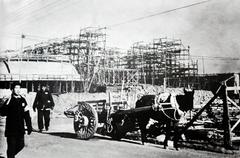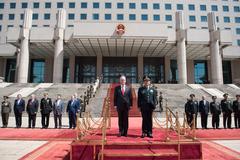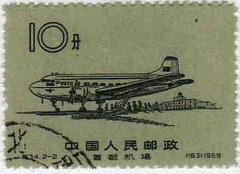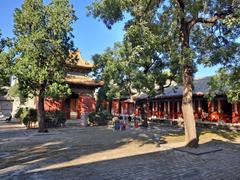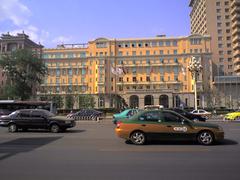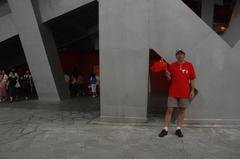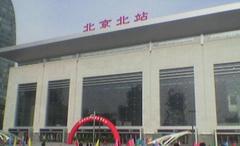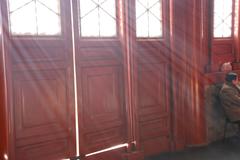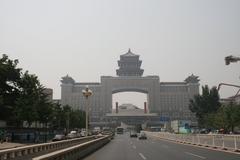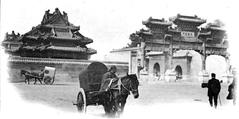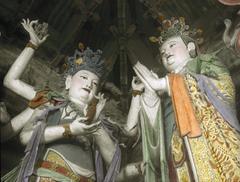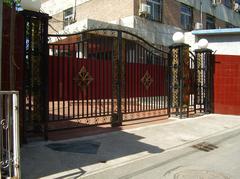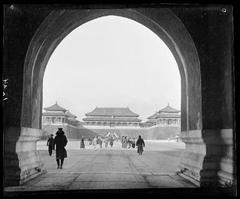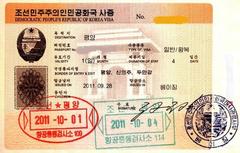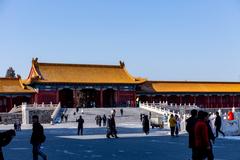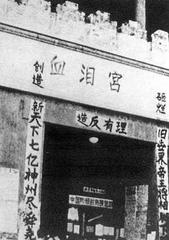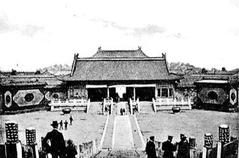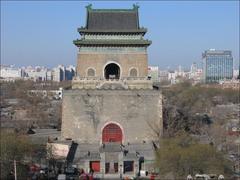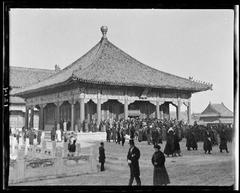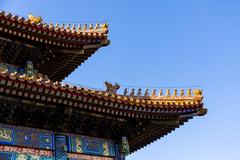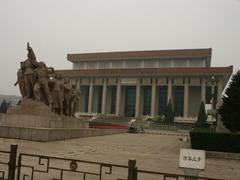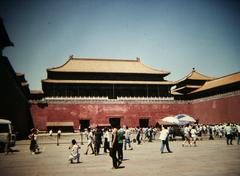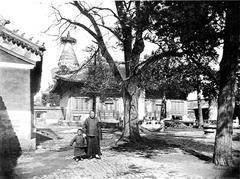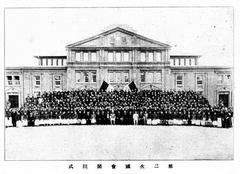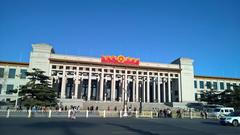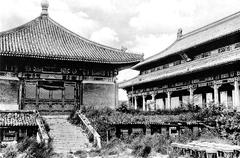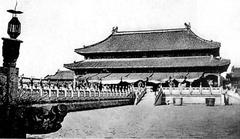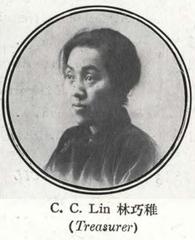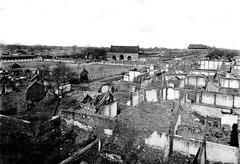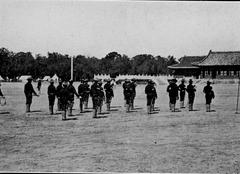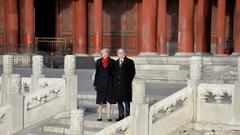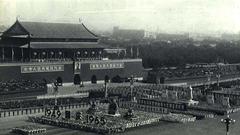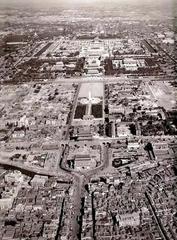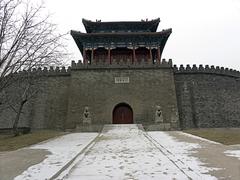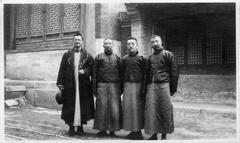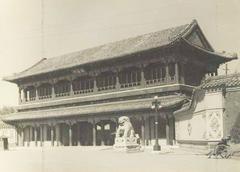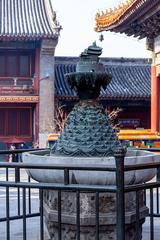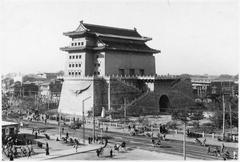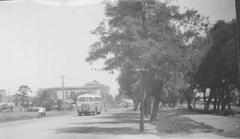Jianguomen South Street Beijing: Complete Guide to Visiting Hours, Tickets, and Historical Sites
Date: 04/07/2025
Introduction
Jianguomen South Street (建国门南大街) is a living chronicle of Beijing’s transformation from imperial capital to global metropolis. Stretching through the heart of the city, it embodies an intersection of history, diplomacy, commerce, and culture. With embassies, modern high-rises, historic monuments, and a cosmopolitan culinary scene, Jianguomen South Street is not merely a thoroughfare—it’s an experience for every traveler. This guide covers everything you need to know: visiting hours, tickets, historical context, transport, accessibility, and practical tips for making the most of your visit (Beijing Government; BJ Review).
Table of Contents
- Historical Overview
- Urban Development and Diplomatic Legacy
- Key Landmarks and Cultural Highlights
- Visiting Hours and Ticketing
- Transportation and Accessibility
- Dining, Shopping, and Amenities
- Practical Visitor Tips
- Frequently Asked Questions (FAQ)
- Summary and Visitor Insights
- References
Historical Overview
Origins and Evolution
Jianguomen South Street’s name translates to “Gate of Nation-Building,” referencing the nearby Jianguomen, a gate from the Ming-era city wall. While the gate itself no longer stands, the area has evolved from a strategic transport artery to a central stage for diplomatic and commercial activity. The transition began in the late Qing Dynasty and Republican era, as foreign embassies moved in following the Treaty of Tianjin in 1860, laying the groundwork for the district’s enduring international character (BJ Review).
Diplomatic Heritage
From the 1950s onward, embassies relocated from Dongjiaominxiang (the old “Embassy Street”) to Jianguomen, reinforcing the area’s reputation as Beijing’s diplomatic district. Today, it remains home to numerous foreign missions, international organizations, and expatriate communities, all contributing to its vibrant multicultural environment (embassies.info).
Urban Development and Diplomatic Legacy
Economic Reform and Modernization
The 1980s marked a turning point as China opened to the world:
- Beijing Jianguo Hotel (1982): The city’s first joint-venture hotel, symbolizing new international partnerships.
- International Building (1985): The first office tower for foreign companies.
- World Trade Center and Scitech Plaza: Established Jianguomen as a major commercial and business hub (BJ Review).
Infrastructure and Connectivity
Jianguomen South Street is served by the Jianguomen subway station (Lines 1 and 2), numerous bus routes, and convenient taxi access, making it one of Beijing’s most accessible urban corridors (The Beijinger; Wikipedia).
Key Landmarks and Cultural Highlights
Historical Sites
- Beijing Ancient Observatory: One of the world’s oldest observatories, dating to 1442. Visit to see Ming-era astronomical instruments and panoramic city views (Lonely Planet).
- Hours: 9:00 AM–5:00 PM; Tickets: 20 CNY (discounts for students/seniors).
- Former Legation Quarter: Once home to foreign embassies in the 19th and early 20th centuries, now a district with European-style architecture, government offices, and restaurants. Walking tours available (Nomadasaurus).
Cultural Venues
- Chang’an Grand Theater: Showcases traditional Chinese opera and performing arts.
- Red Gate Gallery: Contemporary art gallery in a Ming-era watchtower, with rotating exhibitions and artist residencies (Lonely Planet).
Parks and Green Spaces
- Ritan Park: A historic altar park offering tranquil gardens, ponds, and local activities. Free entry, open 6:00 AM–9:00 PM (Lonely Planet).
- Ming City Wall Relics Park: Preserves a section of the original city wall, ideal for leisurely walks (Lonely Planet).
Shopping Destinations
- Silk Street Market: Famous for silk goods, clothing, and souvenirs; open 9:00 AM–9:00 PM (Nomadasaurus).
- Beijing Friendship Store: Offers traditional crafts and modern goods, open daily 10:00 AM–9:00 PM.
Culinary Highlights
- Donglaishun Restaurant: Renowned for Beijing-style hotpot.
- International Eateries: Diverse options reflect the expatriate community, including French, Japanese, Middle Eastern, and more.
Visiting Hours and Ticketing
-
Jianguomen South Street: Open 24/7 as a public street.
-
Key Attractions:
- Beijing Ancient Observatory: 9:00 AM–5:00 PM (20 CNY).
- Red Gate Gallery: Tuesday–Sunday, 10:00 AM–6:00 PM (Free).
- Silk Street Market: 9:00 AM–9:00 PM (Free entry).
- Ritan Park: 6:00 AM–9:00 PM (Free).
- Friendship Store: 10:00 AM–9:00 PM (Free entry).
-
Guided Tours: Walking tours available for the Legation Quarter and other historic sites; prices vary (typically 50 CNY and up). Book in advance for special events and guided experiences.
Transportation and Accessibility
Subway and Rail
- Jianguomen Station: Major interchange for Lines 1 (East-West) and 2 (Loop), convenient for reaching Tian’anmen Square, Wangfujing, and the CBD (Chinatripedia).
- From Beijing South Railway Station: Line 4 to Xuanwumen, transfer to Line 2 to Jianguomen (~19 minutes).
- From PEK Airport: Airport Express to Dongzhimen, transfer to Line 2 to Jianguomen.
Bus, Taxi, and Cycling
- Numerous bus routes serve the area (fares ¥2–¥4).
- Taxis and ride-hailing (DiDi) are widely available; use metered official taxis.
- Public bike-sharing (Mobike, HelloBike) stations are near subway exits.
Accessibility Features
- Subway stations and sidewalks are equipped with elevators, ramps, and tactile paving.
- Bilingual (Chinese/English) signage throughout.
- Most modern venues are wheelchair-accessible, though some older buildings and hutongs may have limited access (RuqinTravel).
Dining, Shopping, and Amenities
- Dining: Wide range from Beijing cuisine (Peking duck, zhajiangmian) to international fare; English menus are common in tourist spots.
- Shopping: Silk Street Market, Friendship Store, and nearby commercial centers.
- Facilities: Public restrooms in subway stations and malls; carry tissues and sanitizer.
- Accommodation: Options range from historic Jianguo Hotel to international chains and boutique hotels (Rome2Rio).
Practical Visitor Tips
- Payment: Alipay and WeChat Pay widely accepted; some international credit cards can now be linked. Carry some RMB for small purchases.
- Security: Bag checks at subway stations; carry your passport for ID.
- Language: English widely used in tourist and diplomatic areas; translation apps are useful elsewhere.
- Peak Hours: Avoid subway rush hours (7:30–9:30 AM, 5:00–7:30 PM) for comfort.
- Weather: Dress for the season; summers are hot/humid, winters cold/dry.
- Safety: The area is considered safe, with visible police and security presence; beware of pickpocketing in crowded spots.
Frequently Asked Questions (FAQ)
Q: What are Jianguomen South Street’s opening hours?
A: The street is public and open 24/7. Venues and attractions have individual hours.
Q: Is there an entrance fee?
A: No fee for the street. Some attractions (e.g., Beijing Ancient Observatory) charge admission.
Q: How do I get there?
A: Take subway Lines 1 or 2 to Jianguomen Station; buses, taxis, and cycling are also convenient.
Q: Are guided tours available?
A: Yes, for historical and diplomatic sites. Book through local operators.
Q: Is the area accessible for visitors with disabilities?
A: Most modern infrastructure is accessible. Some historic sites may have limited access.
Q: Can I take photos at embassies and government buildings?
A: Photography is generally restricted. Obey posted signs and security instructions.
Summary and Visitor Insights
Jianguomen South Street is a microcosm of Beijing’s global identity, offering a unique blend of historical legacy, diplomatic significance, and modern urban life. Its accessibility, rich cultural offerings, and safety make it a top destination for both first-time and seasoned visitors. Traveling here, you’ll experience the dynamic intersection of tradition and modernity that defines contemporary Beijing (BJ Review; embassies.info; Lonely Planet).
To enhance your visit, use guided tours, attend embassy open days or local cultural events, and leverage digital resources like the Audiala app for updated tips, offline maps, and audio guides.
References and Further Reading
- BJ Review
- embassies.info
- Lonely Planet
- Wikipedia
- Chinatripedia
- RuqinTravel
- The Beijinger
- Nomadasaurus
For more travel guides and updates on Beijing’s historical sites, download the Audiala app and follow us on social media.
